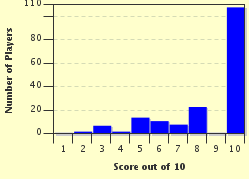Quiz Answer Key and Fun Facts
1. Miss Brooke had that kind of beauty which seems to be thrown into relief by poor dress.
2. You better not never tell nobody but God.
3. Somewhere in la Mancha, in a place whose name I do not care to remember, a gentleman lived not long ago.
4. Stately, plump Buck Mulligan came from the stairhead, bearing a bowl of lather on which a mirror and a razor lay crossed.
5. Someone must have slandered Josef K., for one morning, without having done anything truly wrong, he was arrested.
6. Whether I shall turn out to be the hero of my own life, or whether that station will be held by anybody else, these pages must show.
7. It was a queer, sultry summer, the summer they electrocuted the Rosenbergs, and I didn't know what I was doing in New York.
8. "Yes, of course, if it's fine tomorrow," said Mrs. Ramsay. "But you'll have to be up with the lark," she added.
9. The cold passed reluctantly from the earth, and the retiring fogs revealed an army stretched out on the hills, resting.
10. I was born in the Year 1632, in the City of York, of a good Family, tho' not of that Country, my Father being a Foreigner of Bremen, who settled first at Hull.
Source: Author
LadyNym
This quiz was reviewed by FunTrivia editor
looney_tunes before going online.
Any errors found in FunTrivia content are routinely corrected through our feedback system.

